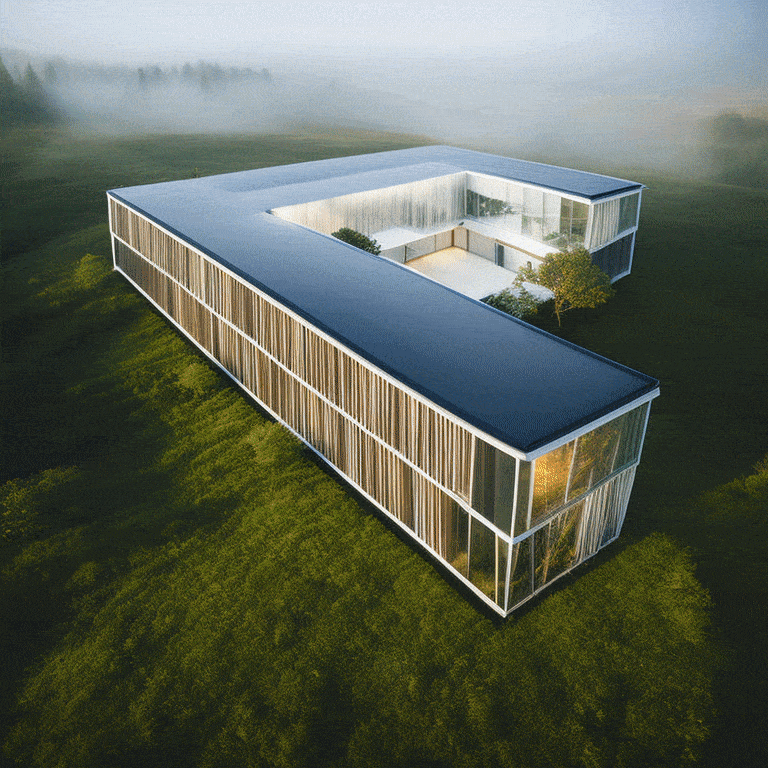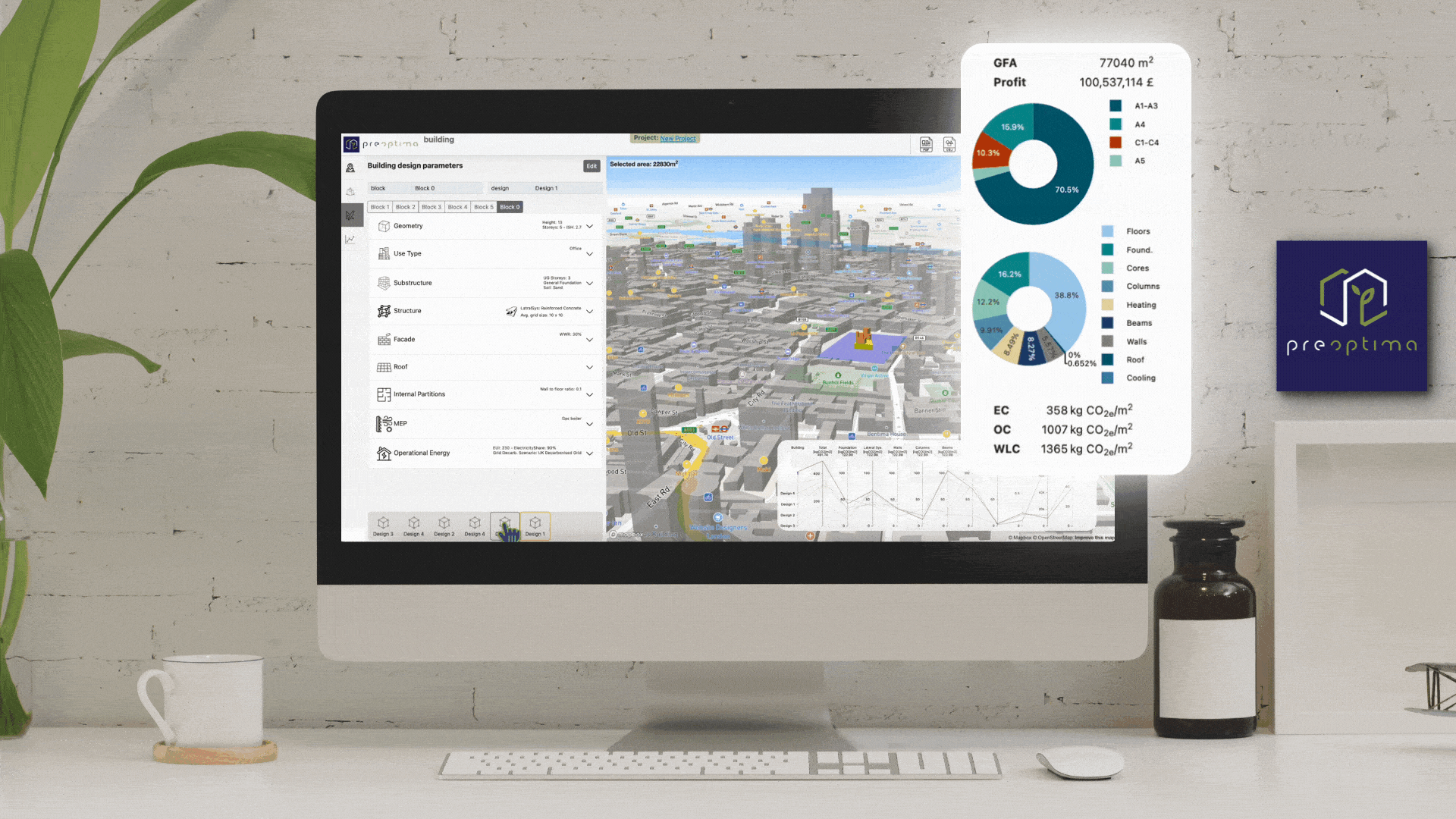
The Digital revolution in construction: Planning and building with AI
ALLPLAN is setting the course for a new digital revolution in the construction industry with its own AI strategy.
Artificial intelligence (AI) is changing our world. The rapid success of openAI shows just how quickly this is happening. After its release, the ChatGPT language model had already reached over 100 million users within just two months. And this is just the beginning. OpenAI founder Sam Altman is not the only one who is certain that AI will shape global society in the next three or four years like no other technology before it. Those who harness AI will be able to make better decisions faster and respond more effectively in the future. ALLPLAN has now developed a strategy for the implementation of AI so that it can continue to offer the most powerful software solutions for the construction industry in the future.

Main areas of application for AI in Allplan
At the heart of the AI concept are two goals: 1. to facilitate existing planning processes; and 2. to create new functions and products. To make this possible, large amounts of data will be used for machine learning together with our partners. As a software manufacturer, we have highlighted the areas of interoperability and data management, user experience, architectural planning, engineering, infrastructure planning, manufacturing, and construction as the main areas of application for improvements and innovations through AI. Innovative partner solutions that can be integrated into work processes via the Allplan ecosystem also play an important role here.
Improving the interoperability of CAD systems
When it comes to interoperability and data management, AI offers numerous optimization potential. This covers, for example, the translation of content into any language, the conversion of data between different formats, improved geometry recognition, and the reconstruction of 3D models or a better understanding of the semantic meaning behind 2D CAD data. One solution in this context was researched together with the Technical University of Munich (TUM) as part of the Deep Linkage research project. The researchers developed automatic methods for checking the geometric consistency between 2D drawings and 3D BIM models, which were generated for the project using different programs.
Together with its AI partner Elevait, Allplan offers machine learning-based solutions for intelligent plan data management for authorities, clients, construction companies, and planning offices. The system is capable of continuously and quickly structuring large sets of plans, highlighting inconsistencies, and offering new forms of targeted searches for information that has been generated in the current project or stored in the plan archive for many years.
Better user experience through AI
AI is expected to bring significant improvements to the user experience of BIM solutions, such as context-related planning assistants within CAD systems and the recognition of program commands from software users in text or voice form using natural language processing (NLP). There is also great potential in “predictive modeling”, in which the program suggests sensible next steps based on the planning history from previous projects. Here too, TUM is already working with ALLPLAN on corresponding technologies. Other possible AI applications include the automatic creation of visualizations and analyses or intelligent assistants for rapid learning and the continuous training of software users.


AI in civil engineering and infrastructure construction
In civil engineering and infrastructure projects, ALLPLAN sees potential for AI in the form of planning optimization (e.g. with regard to design, choice of materials, construction method) by analysing large amounts of data, data-based troubleshooting and error reduction, or monitoring the structural health of existing structures. AI could also support construction management (detailed planning, scheduling, resource allocation), the management of smart infrastructure systems, or the reduction of the environmental impact of construction projects. Solutions for design optimization with regards to the life cycle assessment of construction projects (Preoptima) are already in an early testing phase for building construction.
AI support in production and construction
There are also numerous areas of application for AI-based software solutions for construction companies. For example, for project planning and design (data-based generation of execution plans and schedules), safety management (using sensors on the construction site), supply chain and inventory management, quality control and error detection, or automated construction progress control (using point clouds and BIM). Here too, AI-based applications that can be linked to Allplan or integrated into BIM projects via Bimplus are already being tested, such as RECONSTRUCT, IMERSO (construction site monitoring, risk management) or BREDIC (construction progress recording by monitoring construction machinery). Other conceivable application scenarios include the widespread use of robots and automation technologies, the predictive maintenance and servicing of buildings and construction machinery, and the monitoring and optimization of productivity on the construction site.
Explore what Allplan 2024 has to offer and take your projects to the next level with a free, 14-day trial.
Source: blog.allplan.com – The Digital revolution in construction: Planning and building with AI
ALLPLAN is part of the Nemetschek Group.
-
Singapore: ALLPLAN Software Singapore PTE. LTD. |
4 Battery Road #25-01, Bank of China Building
49908 Singapore - customercare.singapore@allplan.com

